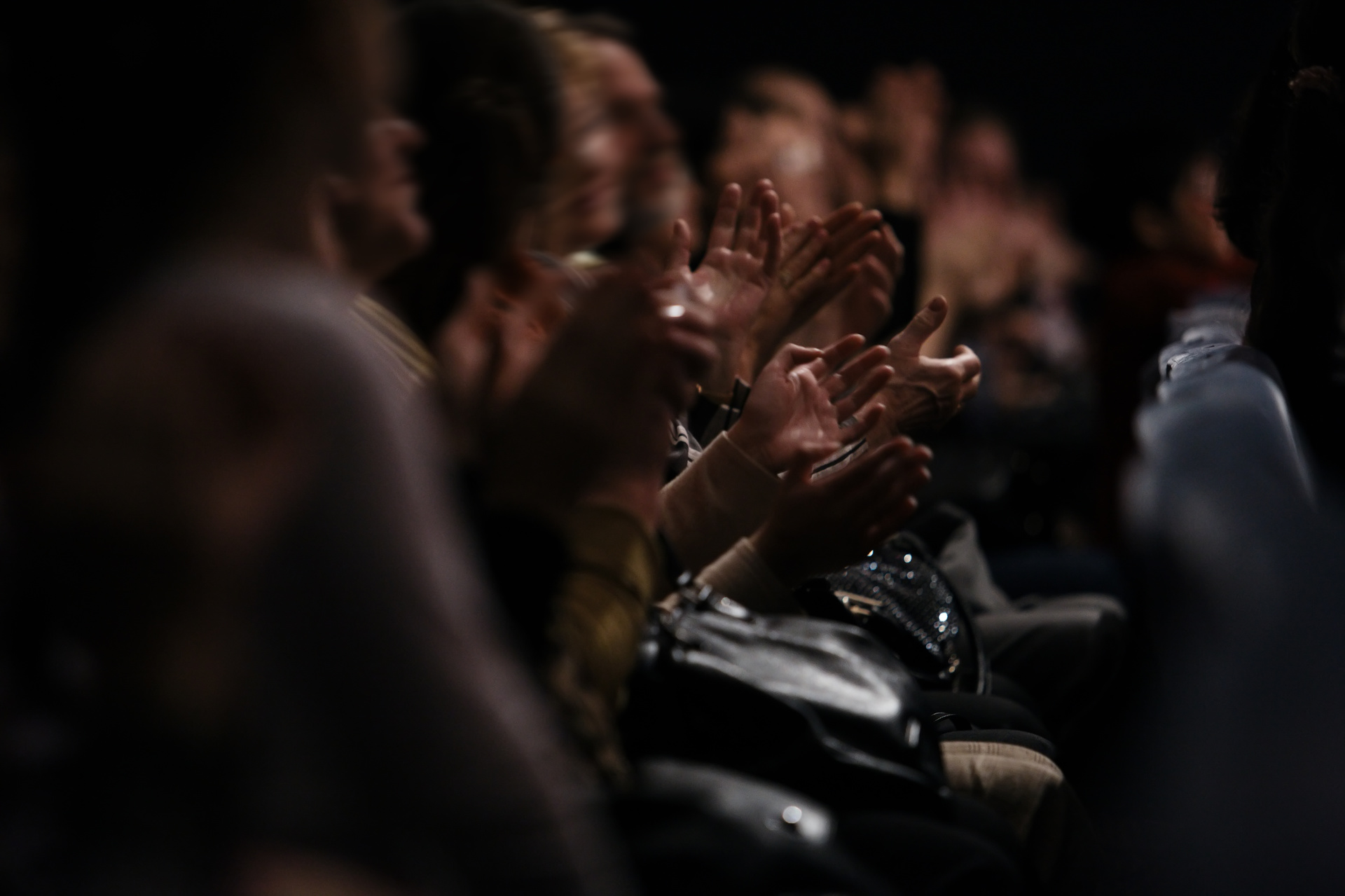
After a few predictable questions from the audience, a well-known journalist stands in the front row. He smiles up at the panel on the stage, then asks its single female writer one question.
It’s unclear how this question relates to the writer’s book, which is a biography of a man who fled the Russian pogroms early last century and went on to become a brilliant, if little known, artist. It is clear, however, that the journalist and five hundred strong audience are excited by this moment he has created, for a bolt of electricity zaps around the theatre as if, instead of asking an innocent question, he has thrown a noose around the woman’s neck.
The writer gazes down at him. She gazes and gazes until his smile dissolves. She says, ‘I am happy to answer your question, if you first answer two of mine.’
Someone whoops at the back of the theatre. People snicker.
The journalist’s jaw clenches.
The writer sits forward on her seat, as if she is about to tell a story. She smiles and says: ‘Firstly, would you ever ask a man the question you have just asked me?’
The room ripples.
The writer and audience wait for a reply.
Though the journalist remains mute, his face bloods red.
The writer waits a little longer. She shrugs. ‘Secondly, why are you asking me a question that you – that everyone – already knows the answer to?’
A thousand eyes stare at the man’s purpling skin. He coughs, as if trying to stop the silence from stretching, but the ragged ugly sound just amplifies the tension.
The writer sits back in her seat. She turns to her colleagues who are lined up by her side like ducks in a row. Though their faces are averted, she can tell that they are, for some reason, as frightened as children. What is wrong with them?
The writer looks back at the journalist. She says, ‘Though you have not answered me, I will answer your question, just in case you truly cannot answer it yourself.’
The writer stands. She steps a few feet away from the panel. She bends down and removes her shoes and her socks. She pulls her shirt over her head. She removes her bra. There is a thick red scar where one of her breasts used to be. Her remaining breast sits low and flat on her chest. Another scar silvers across her heavy, sagging stomach. Stretch marks map all of her edges. She unzips her jeans. Removes them. Her hips are wide and her thighs are dimpled all the way down to her knees. She pulls down her underpants and drops them onto the pile of clothes by her feet. Staring at the journalist, she lifts her arms out by her sides and begins to turn slowly under the hot white stage-lights.
The theatre is so deathly quiet, now, that even the people in the farthest seats can hear the soft dry sound of the writer’s feet as they rotate her. Around and around she goes, turning on one spot, as if she learned, long ago, that she cannot move herself anywhere except through time itself.
After an age, the folds of the red velvet curtains behind her shiver, then split. Two security guards stumble into view. Simultaneously, and rather dramatically, they cross their arms at their foreheads to shield their eyes from the light. A scatter of people laugh, believing, if only for a moment, that they’ve been watching a weird scripted comedy all along.
As the guards approach, the writer stops twirling and gestures with an open palm for them to stop. Uncertain, they obey. She turns back to the journalist and the audience and says, ‘Raise your hand if you think that two plus two equals four.’
Not a single soul moves.
The writer turns to her colleagues. They do not meet her eye. They do not acknowledge her at all, though she is so much closer to them than anyone else in the theatre.
Finally, the guards walk right up to the writer. Tentatively, one of them whispers something to her. She nods. She bends down and picks up her clothes and her shoes. They escort her off the stage, one on each side, like bookends.
In the space where the writer sat, there is nobody.
In the space where the writer spoke, there is silence.
In the space where the writer turned her body under the hard bright lights, there is nothing but slow-moving motes of dust.
Somehow, and despite a thousand watching eyes, the woman has simply and completely disappeared.
H C GILDFIND works an array of odd jobs, including writing and editing. She has a PhD, which she wrote on two Australian novels from 1936 in the light cast by that year’s Australian Women’s Weeklies. Her story 'Born sleeping' won the University of Miami novella competition in 2021.
